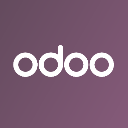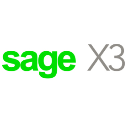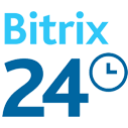10 alternatives to Odoo for taking back control of your ERP
Odoo is the Swiss Army knife of business software. An all-in-one, scalable, open source ERP that can manage accounting, human resources, project management and sales. On paper, it's almost too good to be true. But then...
When you dig deeper, you discover that Odoo can also mean complex settings, escalating costs and an interface that's not always friendly. Don't panic: if Odoo doesn't quite fit in with your business (or your patience), there are some excellent alternatives, some of them simpler, more specialised, even more affordable.
Whether you're a fast-growing SME, a demanding ESN or an agency looking for fluidity, we'll guide you through the ERP and CRM waters.
Spoiler: there are some real nuggets out there.
What is Odoo?
Odoo is a modular ERP (Enterprise Resource Planning) that plays the role of chameleon. It's aimed at SMEs, ETIs and ambitious start-ups alike. Its promise: manage everything from a single platform, thanks to a suite of more than 30 integrated applications.
Accounting, CRM, project management, HR, e-commerce, marketing... it's all there. And with good reason: Odoo is open source, which means it can be customised to suit your needs. Its modular approach makes it a particularly attractive tool for businesses that want to grow without changing software at every stage.
Its customers range from industrial SMEs to consultancies and retailers. With over 7 million users worldwide, Odoo has established itself as a market heavyweight.
But beware: "modular" does not always mean "simple". And that's where some companies are starting to look elsewhere...
Odoo's key features
What makes Odoo so attractive is its ecosystem of integrated applications. You can do almost anything from a single interface, as long as you master it well.
Here are the key functions that are most popular with users:
- CRM: for tracking sales opportunities, automating reminders and managing pipelines.
- Accounting: invoice management, automatic bank reconciliation, financial dashboards.
- Stock management: real-time tracking, multi-warehouse, automated logistics flows.
- Project management: Kanban, Gantt, team collaboration, time tracking.
- Human resources: management of leave, timesheets, contracts and payroll.
- E-commerce and website: online shop creation, integrated CMS, marketplace connectors.
- Marketing automation: email campaigns, scoring, segmentation, performance monitoring.
In other words, Odoo alone can replace a patchwork of business software. But this richness can also become a trap: the more modules you add, the steeper the learning curve.

Odoo
Why consider an alternative to Odoo?
Odoo looks great on paper, but in the real world of business, certain points can quickly make you cringe. And when you look at the user reviews of G2, Capterra or Software Advice, a number of comments come up again and again.
Here's a quick summary of Odoo's strengths... and limitations:
✅ What we like about Odoo
- Very broad functional coverage, rarely equalled.
- A modular approach: you start small, then add modules as you need them.
- Competitive pricing for community (open source) versions or the first modules.
- An active community and a good ecosystem of partners/integrators.
- Virtually infinite customisation possibilities, especially for technical companies.
❌ What can hold you back
- An interface that sometimes lacks ergonomics, especially compared to more modern tools.
- Complexity when it comes to implementation: without support, it can become a building site.
- Hidden costs: customisation, hosting, maintenance... everything can quickly add up.
- Support is sometimes deemed insufficient or too standardised depending on the situation.
- Not always ideal for very specific businesses (agencies, ESN, services, etc.).
In short: Odoo remains a safe bet, but it's not for everyone.
If you're looking for greater simplicity, a more targeted business tool, or an ERP designed for collaboration, the alternatives we've suggested are likely to strike a chord.
Comparative table of the 10 best alternatives to Odoo
1 of 10
 Odoo |  Dolibarr ERP CRM |  ERPNext |  Sage 100 |  Sage X3 ERP |  BoondManager |  Furious |  Holded |  Bitrix24 |  Zoho One |
|---|---|---|---|---|---|---|---|---|---|
| For companies with more than 1 employees | For companies with 1 to 5000 employees | For all companies | For companies with 1 to 250 employees | For all companies | For companies with more than 1 employees | For companies with 2 to 5000 employees | For companies with more than 50 employees | For companies with more than 1 employees | For all companies |
| See software | See software | See software | See software | See software | See software | See software | See software | See software | See software |
| Learn more about Odoo | Learn more about Dolibarr ERP CRM | Learn more about ERPNext | Learn more about Sage 100 | Learn more about Sage X3 ERP | Learn more about BoondManager | Learn more about Furious | Learn more about Holded | Learn more about Bitrix24 | Learn more about Zoho One |
General alternatives to Odoo
Dolibarr
Dolibarr is an open source ERP that's simple, robust and accessible. Born in France, it is aimed at very small businesses, SMEs, associations and even the self-employed. Its great strength? An ultra-readable modular structure, a simple but functional interface, and the option of local or cloud installation.
Dolibarr doesn't aim to impress, but to make business management really manageable, even for non-technical profiles. It can be used on its own or enhanced with modules to suit your needs (over 150 available on the Dolistore). An excellent choice for those who want to build their ERP à la carte, at a lower cost.

Dolibarr ERP CRM
Key functionalities
- Sales management: quotes, orders, invoices, automatic reminders, customer follow-up.
- Integrated CRM: opportunity tracking, segmentation, sales reminders.
- Simplified accounting: sales journal, accounting export, VAT management.
- Stock and products: management of incoming/outgoing goods, inventories, suppliers.
- Human resources: holiday management, expense reports, working hours.
- Business modules: cash desk, projects, membership management for associations, etc.
- Multi-user access with personalised rights, API REST, external connectors.
👉 Our opinion
Dolibarr is ERP without the headaches. It's perfect for small organisations that want to remain independent of software publishers while keeping control of their tool. Open source, customisable and cost-effective, it requires a bit of elbow grease at the outset, but offers real freedom afterwards. For pragmatic people.
ERPNext
A direct competitor to Odoo, ERPNext is a complete open source ERP, born in India and developed by Frappe Technologies. Its modern interface, clear architecture and simplicity-focused product philosophy are winning over more and more SMEs and SMBs.
It is designed to meet cross-functional management needs: production, finance, HR, CRM - everything is native. There are no pay-as-you-go modules, everything is included. It can be deployed as SaaS or on-premise, with an active international community , and a web framework (Frappe) that is highly appreciated by developers.

ERPNext
Key functionalities
- CRM and sales: management of leads, pipelines, quotes, invoices, subscriptions.
- Purchasing and stocks: suppliers, procurement, multi-warehouse tracking.
- Full accounting: multi-currency, reporting, balance sheets, automated entries.
- Manufacturing: bills of material, production orders, capacity planning.
- Human resources: recruitment, payroll, holidays, time management.
- Project management: Kanban, Gantt, time tracking, collaboration.
- Customer support: helpdesk, ticket management, FAQ.
👉 Our opinion
ERPNext is a very credible alternative to Odoo, with a strong open source philosophy, but a more structured and less dispersed product approach. We like its clear interface, the way it works based on user roles, and the rich functionality it offers right from the start. It's ideal for SMEs looking for a solid ERP that doesn't lock them into a proprietary system.
Karlia
Karlia is the French modular ERP that doesn't make a lot of noise... but does the job, especially in industry, logistics and trade. Designed for industrial SMEs, it focuses on the essentials: streamlining management processes without unnecessary complexity.
What sets it apart? A modern interface, quick start-up and, above all, a determination to stick to the realities on the ground. The tool is produced by a French team, with local customer support and regular upgrades.
In short, a serious alternative to Odoo if you want to avoid technical overkill while remaining ambitious.
Key functionalities
- Sales management: quotes, orders, invoicing, customers, reminders.
- Production monitoring: production orders, planning, workshop management.
- Stocks and purchasing: product traceability, suppliers, replenishment management.
- Integrated CRM: prospect tracking, sales tasks, simple marketing actions.
- Worksite and project tracking: ideal for the construction industry and installers.
- Customised dashboards: visibility of KPIs, accounting exports.
- Secure SaaS hosting in France, with the option of APIs and connectors.
👉 Our opinion
Karlia is the good student of business ERP: reliable, fluid, no-nonsense. It's got a clear vertical positioning, fast learning curve and human customer support, which makes a welcome change from the usual gasworks. Ideal for industrial SMEs that want a solid tool, without functional overload.
Sage 100
Sage 100 is the preferred ERP for CFOs and prudent managers. It is aimed at traditional, often growing, SMEs that need rigorous accounting, reliability and legal compliance. In France, it is almost the standard for accounting firms.
With its modular approach, Sage 100 allows you to activate only the building blocks you need: accounting, sales management, payroll, CRM, etc. This is clearly a serious, well-structured solution, designed to support growth without any fiscal slippage.

Sage 100
Key features
- Advanced accounting: French chart of accounts, VAT, automatic entries, lettering.
- Sales management: quotes, order forms, invoicing, stocks.
- Integrated CRM: contact and reminder management, sales campaigns.
- Reporting and dashboards: analysis of margins, cash flow, profitability.
- Payroll and HR management (optional): social security declarations, payslips, DSN.
- Local or cloud hosting, depending on security or legal constraints.
👉 Our opinion
Sage 100 is the safe bet for SMEs that want to sleep soundly. No risky experimentation here: everything is square, compliant and well documented. If you have strict accounting obligations or a very process-oriented management culture, Sage 100 will probably be more reassuring than an open source ERP.
Sage X3
Sage X3 is the big brother of the Sage range, designed for SMEs and international groups. More powerful, more modular and more structured, it is capable of managing complex processes, international subsidiaries and heavy industrial flows.
A far cry from 'generalist' ERPs, Sage X3 offers a rigorous structure and advanced functionalities, with the ability to model complex multi-stage, multi-entity and multi-currency flows. It is clearly aimed at companies that have taken a step forward in terms of structuring or growth.

Sage X3 ERP
Key features
- Multi-entity management: sites, subsidiaries, currencies, local regulations.
- Advanced finance: consolidation, IFRS, cost accounting.
- Production and logistics: MRP, quality, traceability, maintenance.
- Purchasing and sales: contracts, tenders, automated orders.
- Customisable workflows and granular access rights.
- Cloud, on-premise or hybrid hosting, depending on your IT requirements.
👉 Our opinion
Sage X3 is a heavyweight, in the good sense of the word. Perfect for complex organisations that want a structured, international ERP that can be industrialised. If Odoo seems too flexible or too 'techy', Sage X3 offers you a robust framework for scaling up, with the seriousness that goes with it.
Vertical ERP for service companies, ESN, agencies
Boondmanager
Boondmanager is aimed at a well-targeted audience: ESNs, consultancies and agencies. Where generalist ERPs fumble around, Boondmanager gets straight to the point: manage the profitability of assignments, track staffing, invoice at the right time, and leave nothing to chance on the management side.
Boondmanager has been designed for businesses that bill on a time and materials, fixed-price or time-spent basis, enabling management to clearly visualise margins, forecast future costs and make better use of their resources. An efficiency- and management-oriented solution that speaks the same language as its users.

BoondManager
Key functionalities
- Business tracking: opportunity management, budget, progress, profitability.
- Staffing and resources: schedule management, availability, TJM.
- Integrated timesheets and holiday management.
- Automated invoicing based on models (fixed price, time and materials, subscription).
- Financial management: cash flow forecasts, gross margin, ROI per project.
- ERP / payroll / accounting connectors to integrate with existing systems.
👉 Our opinion
Boondmanager is the ERP that understands ESNs. We like the fact that it's 'ready to use' for service companies, with a real focus on project profitability and figures-based management. It's less cumbersome to deploy than a general-purpose ERP, and much more relevant to these specific businesses.
Furious
Furious lives up to its name: it's an ultra-dynamic, modern and frictionless ERP for agencies and ESNs. It is aimed at a demanding audience who want to centralise their management in a single tool: prospecting, sales, production, finance... everything is integrated.
Furious doesn't just line up modules: it seeks to streamline workflows, anticipate risks and save time across the board, with a user-friendliness that is a real departure from traditional ERP systems. And for once, we're even talking about a cool UX in a management tool.

Furious
Key features
- Intelligent CRM: automatic reminders, scoring, opportunity tracking.
- Real-time project management: assignment, production, deviation alerts.
- Time and schedule tracking: natively integrated, quick and easy.
- Automated invoicing: fixed-price, flat-rate, subscriptions, rebilling.
- HR management: holiday management, interviews, expense reports, payroll possible.
- Predictive dashboards: live gross margin, burn rate, project workload.
👉 Our opinion
Furious is an ERP that doesn't look like an ERP. It's fluid, well thought out for hybrid teams, and tailor-made for agile service companies. If you're looking for a tool that connects sales management, production and finance without friction, this is a real nugget. As a bonus, the product team is super responsive.
Holded
Hailing from Spain, Holded is a lightweight cloud ERP solution designed for freelancers, micro-businesses and agencies who want to manage their business without the hassle of a huge system. Modern, visual and ultra-intuitive, it's the 'feel good' ERP for creative people... but with substance.
Holded concentrates on the essentials: quotations, invoicing, project management, CRM and accounting. No jargon, no integration tunnels. Everything is done in just a few clicks, with an ultra-polished UX and a real focus on the user experience.

Holded
Key features
- Invoicing and estimates: customisable templates, automated sending, reminders.
- Simplified accounting: expense management, VAT, bank synchronisation.
- Lightweight CRM: prospect management, tasks, opportunity tracking.
- Project management: planning, kanban, time tracking.
- Customer portal: access to invoices, quotes, documents.
- Integrations: Google Workspace, Zapier, Stripe, etc.
👉 Our opinion
Holded is the ERP for people who hate ERPs. It's super-simple, quick to learn and a pleasure to use. It won't suit large organisations, but for an agency or a team of 5 to 30 people, it's a fluid, modern tool that's 100% cloud-based. We love its 'no bullshit' logic.
Bitrix24
Bitrix24 is the kind of software that wants to do everything... and does it rather well. CRM, project management, collaboration tools, intranet, automation... all in a single interface, designed to centralise the work of teams.
Available in cloud or on-premise versions, Bitrix24 is aimed primarily at SMEs, start-ups and agencies that want an all-in-one environment, without having to juggle between ten tools. It's not the most minimalist on the market, but it's probably one of the most comprehensive.

Bitrix24
Key functionalities
- Full CRM: pipelines, scoring, marketing automation, email/SMS campaigns.
- Project management: Kanban, Gantt charts, task tracking, deadlines.
- Team collaboration: integrated chat, video calls, workgroups, intranet.
- Automation: customisable rules for sales, HR, customer support.
- Documents & drive: document management, co-editing, cloud storage.
- HR portal: holidays, absences, schedules, working hours.
👉 Our opinion
Bitrix24 is a gas factory... in a good way. Very rich, very modular, and surprisingly affordable for what it offers. It takes a little time to find your way around, but the investment is well worth it for organisations that want to centralise everything in a single platform. Special mention for the integrated collaborative tools.
Zoho One
Zoho One is the enterprise version of the Google-style software suite. More than 45 integrated applications, from CRM to accounting, HR management, marketing automation, helpdesk, BI... A true OS for SMEs, designed to manage everything, connect everything, automate everything.
Where Odoo offers its modules à la carte, Zoho One offers everything, straight away, in a single package, at an unbeatable price. It's ideal for businesses looking for software consistency without a budget explosion.

Zoho One
Key functionalities
- Zoho CRM: advanced sales management, workflows, campaigns, predictive AI.
- Zoho Books: accounting, invoicing, VAT, bank reconciliation.
- Zoho Projects: agile project management, time tracking, roadmaps.
- Zoho People: complete HRIS: holidays, payroll, interviews, onboarding.
- Zoho Campaigns & Marketing Hub: marketing automation, email, analytics.
- Zoho Analytics: dashboards, BI, customised reporting.
- Native integrations between all apps + open APIs.
👉 Our opinion
Zoho One is the outsider that breaks the mould. You get a complete, scalable software suite for the price of a single traditional tool. The ecosystem is dense, but extremely coherent. It's a dream option for digital SMEs that want to centralise everything without breaking the bank or wasting time on integration.
Summary table: focus on the functionalities of alternatives to Odoo
| Software | Type of user | Strengths | Key features | Entry price |
| Bitrix24 | Collaborative SMEs, agencies | All-in-one suite, collaborative tools, advanced CRM | CRM, project management, automation, intranet, document storage | Free (limited offer) |
| Boundmanager | NSEs, consultancies | Profitability monitoring, project management, business invoicing | CRM, staffing, time, forecasting, invoicing, reporting | By quotation |
| Dolibarr | VSEs, technical SMEs | Open source, customisable, lightweight | Sales management, CRM, invoicing, accounting, HR | Free / <10 €/month |
| ERPNext | Growing SMEs | Modern open source, all-in-one included | CRM, purchasing, production, accounting, HR, project management | Free (self-hosted) |
| Furious | Modern agencies and ESNs | polished UX, real-time control, automation | CRM, projects, time, invoicing, HR, dashboards | From €25/user/month |
| Holded | Freelancers, micro-businesses | Simple, fluid UX, simplified management | Invoicing, projects, CRM, accounting, customer portal | Free (limited), then €29/month |
| Karlia | Industrial SMEs, construction and public works | French ERP, verticalised, local support | Sales, production, stock, worksites, CRM, dashboards | On quotation |
| Sage 100 | Structured SMEs | Reputation, legal compliance, reliability | Accounting, sales management, CRM, HR (optional) | From ~€120/month |
| Sage X3 | SMEs, international groups | Multi-site, multi-currency, structured ERP | Finance, production, purchasing/sales, HR, compliance, workflows | On quotation (high ticket) |
| Zoho One | Digital SMEs, start-ups | Functionality/price ratio, complete integrated ecosystem | CRM, accounting, projects, HRIS, marketing automation, BI, +45 apps | From €37/user/month |
How do you choose your management software (ERP/CRM)?
Choosing an ERP or CRM is not just a question of functionality. It's a strategic choice that will impact your processes, your productivity... and your peace of mind for years to come.
So, before rushing headlong into Odoo or its competitors, ask yourself the right questions.
1. What are your real business needs?
There's no point chasing after 30 modules if you're only using 3. Ask yourself:
- Do I need advanced accounting, or just invoicing?
- Do I have a product / stock or service / time logic?
- Do I need to work with several people or manage my business on my own?
👉 For an industrial SME: Karlia, ERPNext or Sage 100.
👉 For an agency / ESN: Furious or Boundmanager, which are better suited to project-based models.
👉 For a VSE or freelancer: Holded or Dolibarr are more than enough.
2. What is your level of technical autonomy?
An open source ERP is great... if you have the resources to install, maintain and optimise it.
👉 If you're comfortable with the technical side or have an IT team: ERPNext or Dolibarr can be powerful choices.
👉 If you're looking for ready-to-use solutions: Zoho One, Bitrix24 or Holded are your best choices.
3. What's your total budget (not just the subscription)?
An ERP that isn't expensive to subscribe to can be expensive to deploy, train, integrate or support.
Solutions like Sage X3 or Boundmanager often require a substantial project budget.
Tools such as Zoho One or Bitrix24 offer very high functional value for a contained price.
4. How flexible do you need to be?
Some solutions are very structured (Sage), others very flexible (Odoo, Dolibarr).
👉 Do you need strict processes, auditability and compliance? Sage 100 / X3.
👉 Want to tailor the tool to your image? Odoo, ERPNext, Dolibarr are more flexible.
5. And finally... How fast are you growing?
An ERP is also a lever for growth. It must be able to grow with your business.
👉 Are you accelerating? Opt for a scalable solution like Zoho One or ERPNext.
👉 Staying on a stable perimeter? A simple solution like Holded or Dolibarr will do the trick.
Article translated from French